In 2022, the U.S. Army finally concluded its search for a new battle rifle, lightweight machine gun, and cartridge, choosing Sig Sauer’s design.
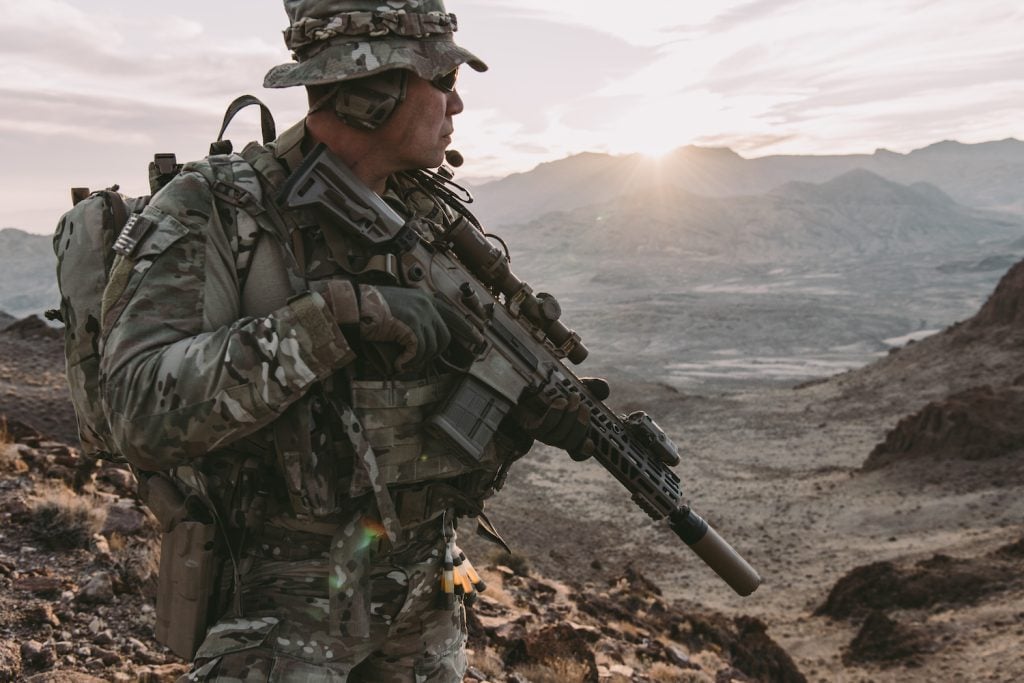
The iconic 5.56mm appears to have largely been superseded by the 6.8mm. But what do we know about this chambering? And what, specifically, do we know about the 6.8×51 Common Cartridge?
Let’s take a closer look…
Table of Contents
Loading…
What Is the 6.8 Common Cartridge?
The 6.8x51mm Common Cartridge, also known as the .277 Fury, was developed by Sig Sauer as part of the United States Army’s Next Generation Squad Weapon Program…more on that in a minute.
The round is a hybrid three-piece with steel case head and brass body. Its case shares the same length as the .308 Winchester.
The Hunt for a New Cartridge
After 2001, numerous stories started to trickle out of Afghanistan of enemy soldiers requiring multiple hits from the 5.56mm. A harder-hitting cartridge was needed, and so the Army went to work.
Collaborating with Remington in 2002, the Army Marksmanship Unit began the development of a stronger cartridge. The result was the 6.8x43mm SPC – the 6.8mm.
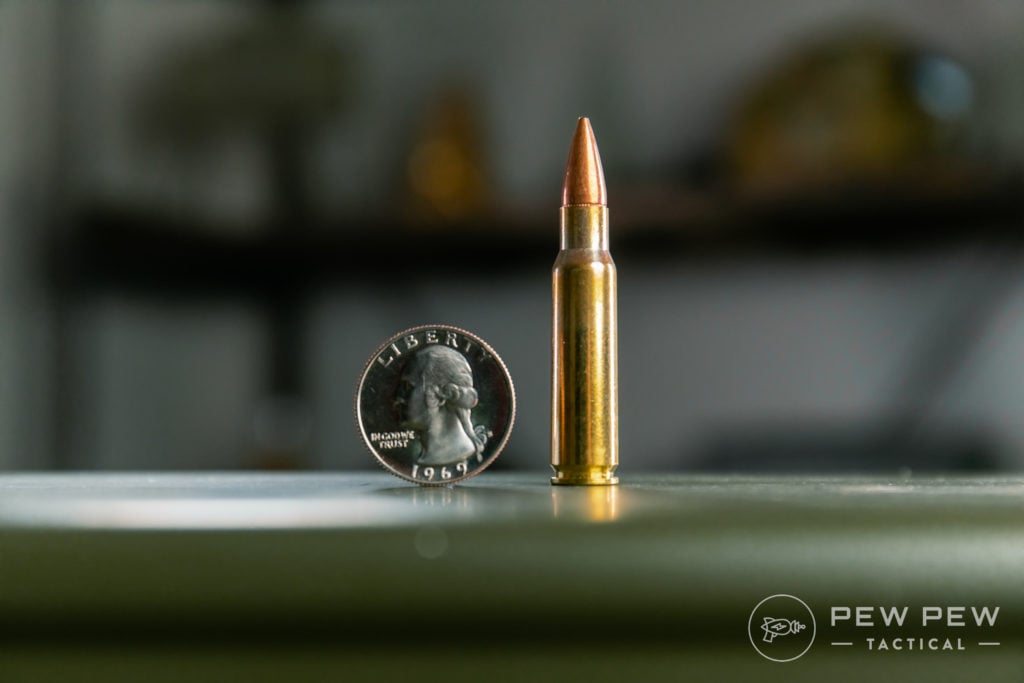
By 2004, the Army had realized how great of a round they’d helped create and were ready to add it to their arsenal. They did so with the M468.
Though the M468 wasn’t widely adopted – 5.56mm still reigned supreme – the Army knew they had found something good.
As body armor became more prevalent on the battlefield, the Army knew they had to apply their newfound discovery across a wider swath of their troops. The hunt for a new weapons system accommodating the 6.8mm began over a decade later.
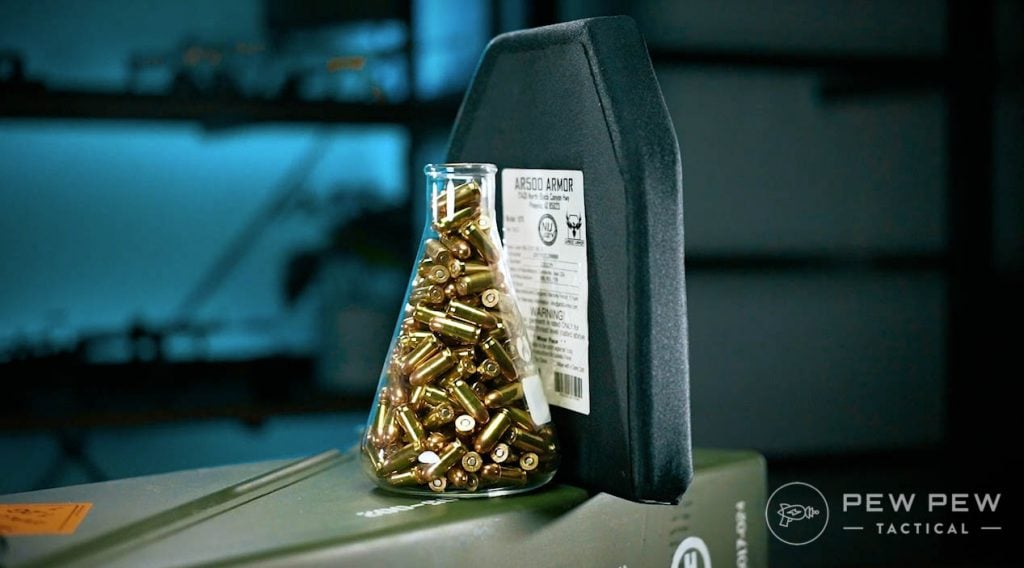
Is the 6.8x51mm a Good Fit for the Army?
Body armor has come a long way since the widespread use of flak jackets throughout the Vietnam War. On the modern battlefield, body armor is ubiquitous. It’s grown so affordable that it has found its way into the hands of men across the globe.
The problem is that 5.56 ammunition only has an effective lethal range of roughly 300 meters. If the enemy is beyond that distance and wearing body armor to boot, you have a rifle that can’t neutralize the threat in time.
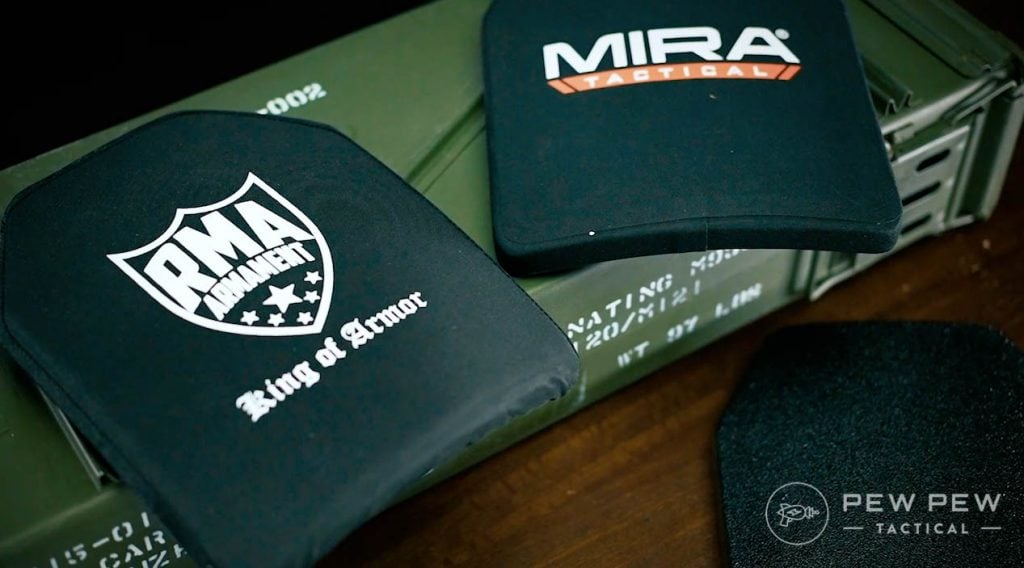
In contrast, the new 6.8mm ammunition has an effective lethal range of 600+ meters, a higher velocity, more energy hitting being transferred to the target, and a lighter cartridge.
While the Army won’t say whether the new cartridge can penetrate body armor at that distance, the silence suggests yes.
The new ammunition is also lighter than a traditional 100% brass casing and can handle higher pressures than traditional casings. This, in turn, gives it a significant increase in velocity and improved terminal performance compared to the 5.56mm.
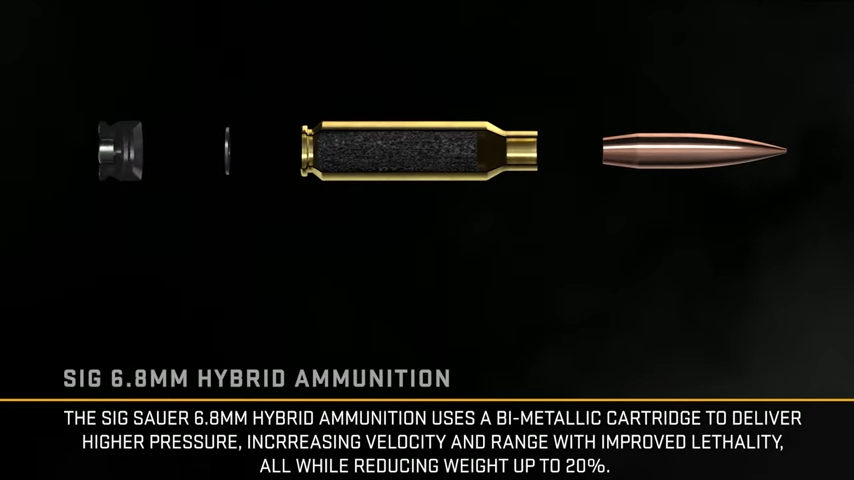
The result of all these changes (amongst many others) is that you end up with a weapon such as the XM250, which is 40% lighter than the M249 lightweight machine gun, has reduced recoil, improved accuracy, and has double the effective range of fire.
There’s not just going to be one type of 6.8mm ammunition that the Army is going to be using here, either.
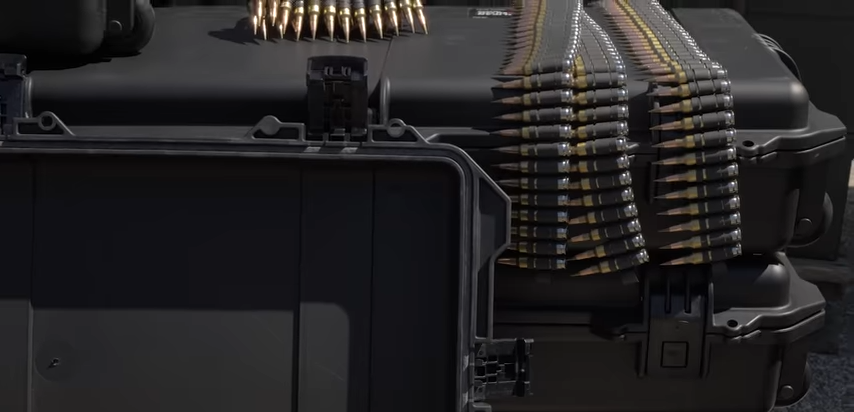
According to the Army, there will be “multiple types of tactical and training rounds that increase accuracy and are more lethal against emerging threats than both the 5.56mm and 7.62mm ammunition.”
Those types of tactical rounds haven’t been specified, but it’s likely to contain the standard battery of incendiary, green tips, tracers, and various powder/bullet combinations.
The Logistics of Outfitting the Army with New Weaponry
War is logistics. Wars are lost if the “how” doesn’t line up just right. Just ask Napoleon.
In addition, troops will have to be trained in the new weapons, factories will have to be built to produce them (and the ammunition), and stockpiles will have to be built.
The private market is being utilized to avoid most of these issues. For example, Vortex is manufacturing the optics, Sig is making the weapons, and Sig will also be the initial source of the ammunition.
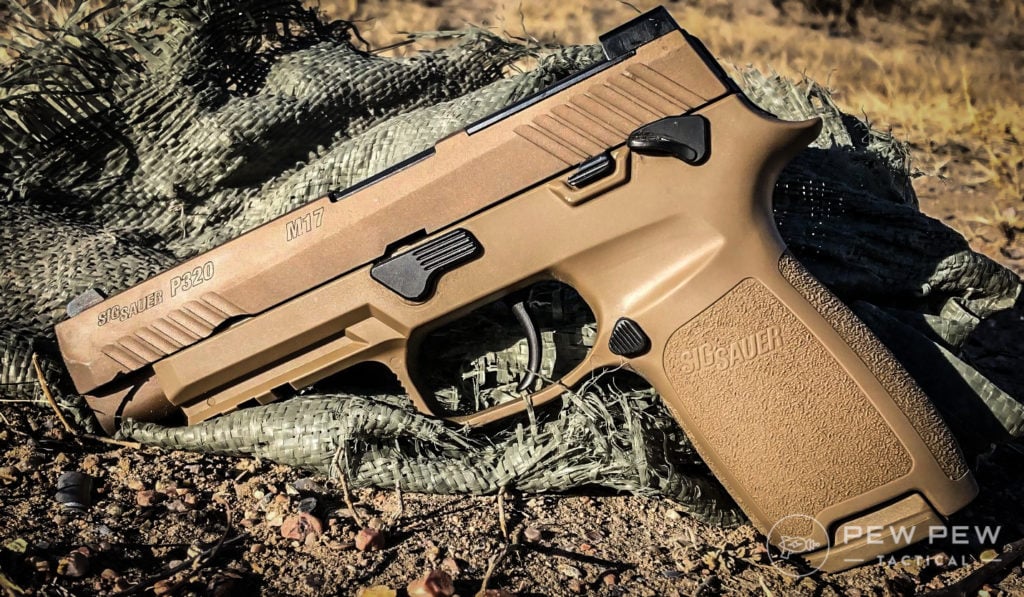
Army Brigadier General Larry Q. Burris said that “the fielding of this weapon is based upon ammunition production,” going on to add, “As the vendor is able to produce ammunition and then Lake City [Army ammo facility] ultimately comes on, what we don’t want to do is field a capability to a unit where we don’t have training ammunition or contingency ammunition if required. That’s what drives the fielding of the weapons.”
A gun without rounds is a stick. You have to have ammo, and the Army knows this. While Sig will be the initial source of the new ammo, the Army has already cleared ground at Lake City, Missouri, for military production levels.
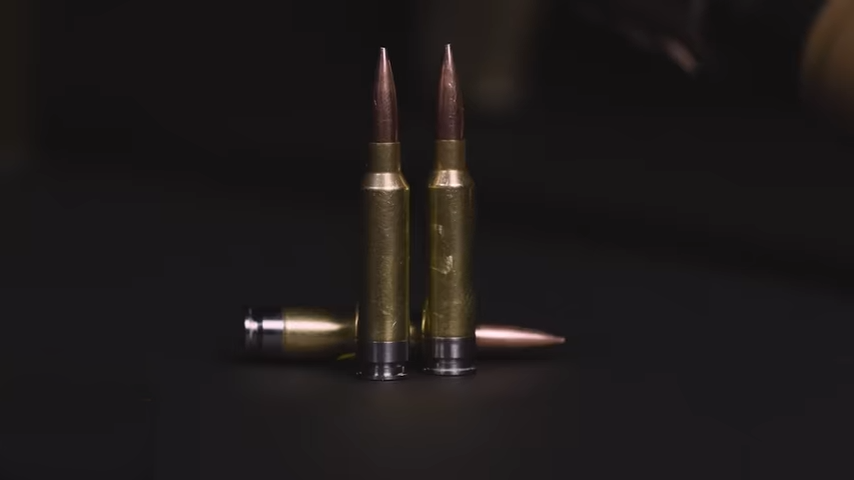
One of the catches with the new ammunition is that it utilizes a hybrid case with a steelhead and brass body. This adds a step to the manufacturing process. It can still be made with current machinery, but those parts of the casing do have to apparently be assembled.
So, while this saves funds in having to engineer new machinery, it adds another step. Whether the savings cancel each other out here is debatable.
Conversion kits for older rifles are also in the works, helping to keep the Army from having to sell off large stocks of “old” rifles altogether. This will save funds and provide a nice contingency source of weapons and means that troops won’t have to be trained on an entirely new platform.
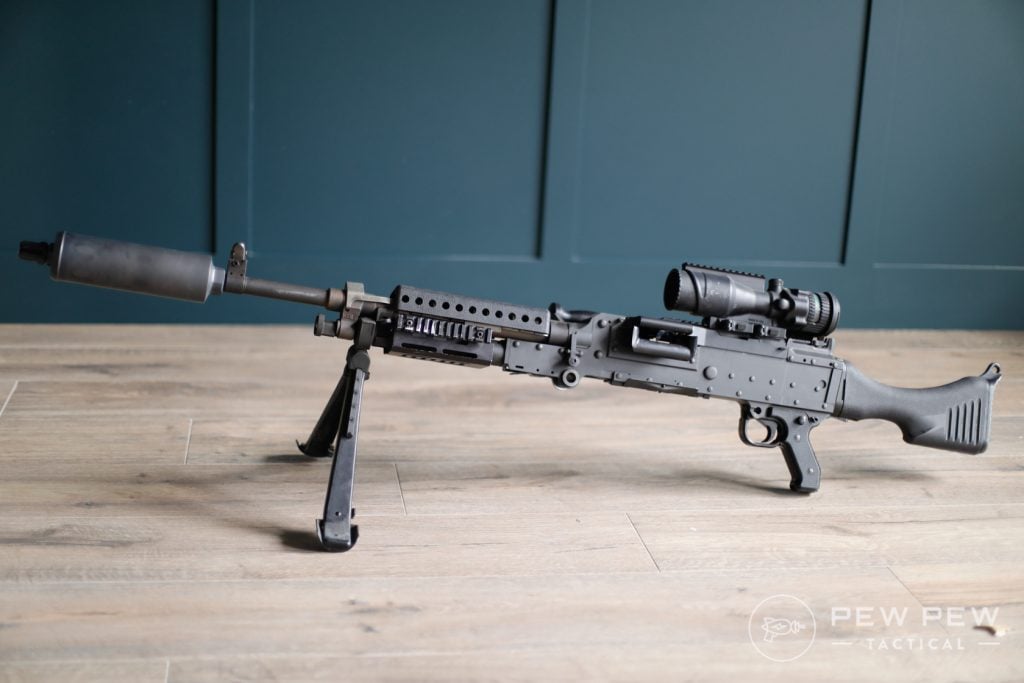
The M240B and maybe the M240L (both of which fire 7.62mm) appear to have a 6.8mm conversion kit in the works, and there may be other units as well that we just don’t know about yet.
Final Thoughts
The new caliber and weaponry is a historical moment in more ways than one. Out of the three options for new battle rifles that the Army had before them, I not only think that they made the right choice with Sig, but I think their choice of caliber was also wise.
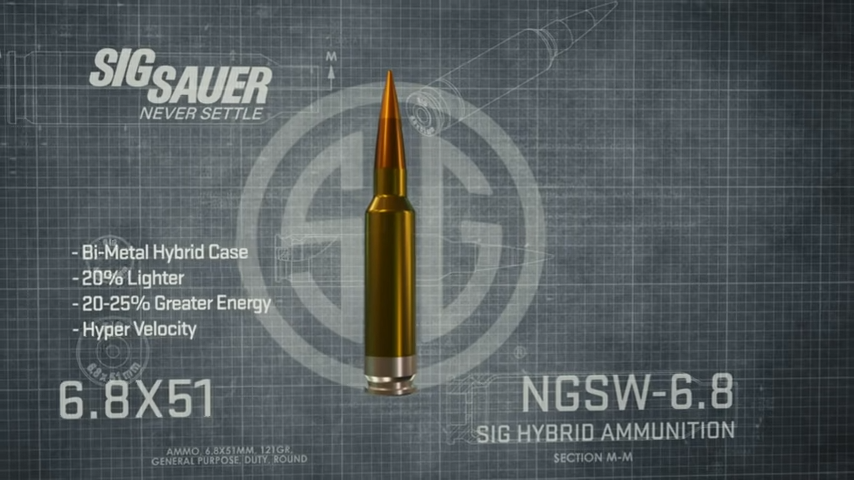
While the 5.56mm is still a great round, warfare changes, and it was time for an update. Continuing to fight with weaponry and cartridges that have been around for decades against conventional forces with upgraded equipment doesn’t cut it.
Even in the Vietnam War, our men often ditched their 5.56mm-eating rifles for liberated AK-47s.
There’s been a long understanding amongst American soldiers that there were a lot of other better weapons out there. The switch to the 6.8x51mm – as well as to the new XM5 – is a welcome step in the right direction.
Prices accurate at time of writing
Prices accurate at time of writing
-
25% off all OAKLEY products - OAKLEY25
Copied! Visit Merchant
What do you think of the .277 Fury? Let us know in the comments below! Interested in more military weapons? Check out the Unconventional Guns of the U.S. Military.

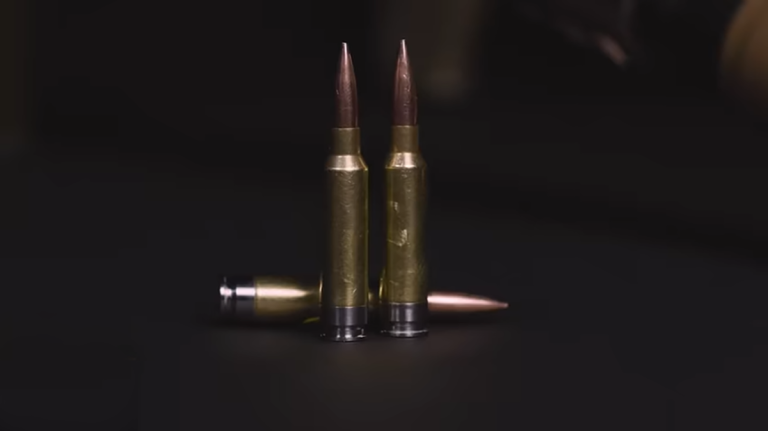
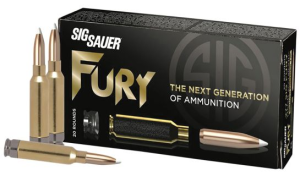






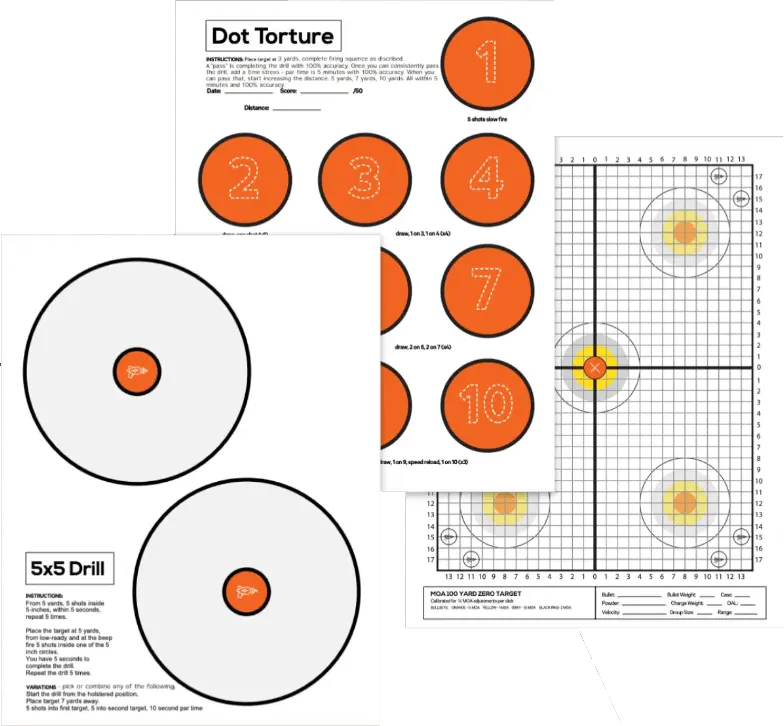
51 Leave a Reply
This is another M14 boondoggle. At least this rifle should make a good SPR.
Because you are talking about the army that put the POS M16 on its troops.
Only the US army would use a cartridge case of brass and when steel would work at one tenth the price.Don't say steel won't work the AK 47 has been kicking ass for 75 years.
The US and Australian Special Forces (SAS) in Vietnam were not to use 7.62x 39 ammunition as many rounds of that caliber had been doctored to blow up the rifles that fired them. I did 2 tours of Vietnam with 3 SAS Sqn and also served with C Sqn Rhodesian SAS. On my first tour of SVN I carried a 7.62 x 51 SLR that had a fully auto change lever and 30 round magazine. On my second tour I carried an M16. In Rhodesia I carried an FN/FAL 7.62 x51mm on internal operations but into Mozambique and Zambia I carried an AK 47.
Its about time the ARMY got its head out of the sand and Choses the 6.8 Rifle over the 5.56, The 5.56 is only good up to about 300 meters, the 6.8 is good to 600 meters with a lot more knock down power, the 6.8 uses a .277 Dia. Bullet, so does the 270 Winchester, Its Basically a 270 Winchester with a little shorter Case, the 270 Winchester is one of the Best All Around Cartages of all time, maybe not the Very best, but one of the best, Its a flat Shooter that can reach out and Touch someone :) I Have a 270 Winchester and I Love it, I can load it light for varmint and Load it Heavy for Large Game, IMHO, Its the Only Rifle that a Person Needs. it can do it all :) Yea, I may have opened a can of WORMS here, But Think about it.
The .270 Winchester is one of the most successful hunting cartridges ever introduced. It shoots as flat as a 7mm or .300 Magnum, kicks less than a .30-06 and kills about as well as either. It is one of the world's greatest all-around hunting cartridges. This blend of desirable characteristics has kept the .270 Win. among the top five best selling cartridges in the USA for decades. It is based on the .30-06 case simply necked-down to accept .277" diameter bullets.
This BS legend of soldiers dropping an M16 for an AK-47 has been debunked by a bunch of Vietnam vets including Special Forces.
The ONLY time I have heard of this was Richard Marcinko in "Rogue Warrior" where the UDT Underwater Demolition Team precursor to SEALs went deep behind enemy lines, wore their clothing & tire-tread sandals they captured, and used captured AK-47 rifles specifically to NOT sound like Americans or SVA to Viet Cong nearby!
This was explicitly to blend in deep behind enemy lines, the M16 jamming was a specific period that happened AFTER the Army switched from Armalite spec propellant to not just slower burning propellant but expired & poorly stored unsealed 40 year old Lake City propellant,
the widespread picking up AK47 to use on patrol instead of their M16 is ridiculous & nonsensical unless they also found a semitruck load of AK bullets
Yes, that charging handle is badly placed in some ways. Perhaps should have been placed along the left side of the battle rifle. I suspect its location aided production and ambidexterity. And, too, if retained open after the last round, replacing the magazine with a full one and releasing the bolt requires no charging handle. So, it was not a terrible tradeoff.
I came here to say this. Back in the 1980s, I asked my company gunnery sergeant, who saw intense combat at Dai Do in Vietnam, about this claim. He said that it would be stupid to fire an AK because the sound is so distinctive that you would immediately draw friendly fire.
Why not just make the entire case out of steel? This process would hasten the ammunition along until/ and if they decided brass case would be needed. I know it would hasten the barrels need for replacement, but getting our Army equipped faster and make amends later as production gets up to speed would make sense. In addition, the steel cases would cost significantly less than brass.
In these overpressured rounds, the case will stick to the chamber walls when it expands during ignition. The polymer case expands to the chamber but does not stick, therefore allowing higher chamber pressures. They use stainless for obvious reasons.
Many Soviet Ammunition cases are made of steel
An 80,000 psi cartridge is over-pressurized and will quickly de-stabilize, especially when using a 13" barrel. All that to deliver the same knockdown power and penetration of the redoubtable 7.62x51mm (.308 Win.) that has a max pressure of 62,000 psi. The smarter "play" would be to adopt a simplified version of the SIG 716 patrol rifle, H&K MR762 from the first generation with a 16" barrel and call it a day.
Interesting comments Taby.
To answer your question, the extra 20,000 psi was needed to generate enough fps & energy out of a 13” barrel and penetrate all the advanced body armor that enemy combatants are now wearing on the modern battlefield which is mostly close quarters, thus requiring shorter barrels.
When you are referring to your 270 Winchester only utilizing 60,000 psi, what barrel length was that 22”? 24”? Hunting rifle? Will those lengths accommodate the need for increased maneuverability in close quarters and penetrate body armor? Don’t forget that many enemy combatants are also amped up on amphetamines & other drugs .
It is true that when the M16 first came out, it used a powder which fouled the weapon and caused them to jam! Yes, some troops did grab the AK-47 as it was a more reliable weapon. The M16 was designed by a person who was not in the firearms making business. The charging handle was placed at the back of the receiver where the weapon had to be removed from the shoulder to clear! I was there from 1971 - 1972 and saw the ending of the war.
I am having trouble wrapping my head around the 80,000 PSI and only 3000 fps with a 135 gr bullet. My 270 Winchester(.277 cal) will provide almost identical ballistic with just over 60,000 psi. Just wondering why the hybrid casing and the +20,000 psi higher pressure in the chamber with no significant gain in velocity? And, if the velocity was, say 3500-3800 fps, the barrel would be trash after about 1000 rounds. Maybe, we are not being told all the information specific to what they are doing. But based on what I read, I have to ask why did they make it so complicated? The 6mm ARC is a formable replacement for the 5.56, 100 gr bullet in the 2700 fps range. Barrel and BCG swap and you instantly have a lethal 600yd weapon. Just my kick at the can. Oh yeah, not buying the AK 47 part of the story...just saying.
When I got to the part where you cited the absolutely ridiculous myth of the US Military dropping their M-16's for captured AK-47's, I forgot everything I read. That is so utterly silly to think that this was somehow an option they could actually do. "Uh...well Sir, I lost my M-16, so from now on I'm just gonna use this AK-47 I got from an NVA soldier that I beat with a rock!!". If you believe any US combatant did that in Vietnam and was then "simply allowed to", I got some ocean view property in Idaho to sell you. I'm sure some of the extremely low IQ conscripts tried things that stupid, but believing they were "allowed to" is another issue.
I find it hard to drink this Kool-Aid. At 80K psi, the barrels will suffer accelerated fire cutting. Accuracy will be gone at 1000 rounds -- maybe this is not an issue when you buy the barrels with tax dollars. At 80K psi, our troops will suffer hearing loss, even with muffs over plugs -- it will come through the bones -- that part is just physics. How about lower pressure??? Maybe a 6mm ARC?? yes it would be a bit more work due to the cartridge size and shape but you would have everything offered by 277 (maybe more) without all the collateral damage.
The Sig Sauer .277 Fury is at Midway for 31.99 for a box of 20.
Nice. We have a better cartridge. So now that we've told the world about it, how long will it take our enemies to figure it out and one-up us? It just goes on and on, back and forth. So, in the interim, we can now pursue improved armor while our enemies adopt the new technology, while improving their armor. Ultimately, this whole thing is going to escalate to nuclear exchanges anyway. I feel for my offspring.
For us civilians out here, it appears the cost per round exceeds $4.50… ouch!
Waiting for us to adopt the The 10×24mm Caseless. The cartridge consists of a 210 grain, steel-jacketed and explosive-tipped projectile embedded within a rectangular propellant block of Nitramine 50. Although the propellant mass is small, it is highly efficient, generating muzzle velocities of 2750 meters per second.
Check your units and numbers.
Might this initiative not simply be a way of generating profits for the Military Industrial Complex?
The only benefit to the general populace I can see is that this initiative will prove that AR platform semi-automatic rifles in 5.56 will clearly not be "military grade" and thus should not be seen as "assault weapons" because the military clearly considers them to be deficient for service use.
With .308 aplenty seems like another EXPENSIVE route to take. The whole idea of the 5.56 was to carry more lighter ammo. This cartridge is the same size as a .308 cartridge overall albeit necked down and a complicated steel bimetal which will cause more uneven wear in the chamber of the barrel. Our procurement services division had best rethink this one out.
This article is lacking in some technical details and conceptual comparisons.
The new .277 Sig with full power loads is (for all intents and purposes) a ballistic twin of the good old .270 Winchester, with each capable of launching a .277” 140-grain projectile at 2,950 feet per second. The new .277 Sig is able to achieve this level of performance from a short action cartridge due the innovative case design and corresponding high chamber pressure. The old .270 Winchester cartridge achieved this level of performance the old fashioned way a century ago, albeit in a long action.
It’s also worth noting that the reduced power .277 Sig (with standard brass case instead of reinforced bi-metal) gives ballistics very similar to the 7mm-08 Rem.
The more things change, the more they stay the same!
My thoughts exactly. Thec270 is s beast to be sure but I am suspicious of the claims. 5 to 800 yard? Yea better bc will beat out the 308 in that area and a slight energy advantag over the creedmore but it loosees out after that. Using 3 difeent metals with 3 expantion and adding an assembly stage in productiong gives me alot of doubt.
Should have just adopted the 260 Remington a 6.5 With a bold coefficient which is very high
There is a long history of U.S. civilians adopting military cartridges. Is the hybrid steel/brass cartridge case reloadable with typical hand loading tools?
I thought the 6mm ARC was adopted?
The 6.5 creedmore would’ve been sufficient..
I tend to agree. There are AR platforms that accept the full power cartridges yet have the same footprint and weight of the AR15. POF Revolution DI and the Ruger SFAR are two. The Creedmoore shoots flatter, has less recoil, and penetrates better than 7.62x51. I would think a sub 7 pound Creedmoore that gives the user legitimate 1k range along with CQB would be hard to beat.
And it's in service and is plentiful on civilian market and proven tech.
When they get done up-sizing the venerable WWI 30.06 will again be in fashion, but wait what if I got a 300WM, ok you win with your 338 Lupia
Cheaper and better past 800 yards.
So one of the big selling points of .277 Fury is the greater than 5.56 *velocity*, right? So, ah...what IS the Velocity? I see 3000 fps at the muzzle - so you're claiming it has higher velocity at distance (which makes some sense). Certainly higher energy, I get that - but give us the #'s next time please.
Origins of the 6.8 SPC are accurately detailed, but the jump to 6.8 Fury, not so much. The original intent of that round was something more powerful than 5.56 but not as heavy as 7.62 - literally a light weight round. In the first gen of development it was a telescoped caseless - powder formed around a bullet with priming compound at the base. Second generation of development, it worked a lot better - so much so that a battalions worth of prototypes were made to exercise in training (and likely overseas, too.) At that point the combat rifle used a shuttle door to seal the chamber as no case make its a mandatory requirement.
That didn't make the next step of selection and poly cases in a convenient traditional format became the next generation, and that is where SIG came up with a high pressure 85K cup round to boost performance. That 6.8 has nothing to do with the older 6.8 SPC design - if anything, SPC is a mini me of the much more powerful new cartridge.
Since .277 Fury was released, we have discovered it's notably downrated from the military spec, a .38 Special compared to the .357 Mag power levels originally offered. At this point, the program is so far off the original intent it's obvious the military/industrial gamesmanship has derailed. We thought we'd get a game changer, what we got is sleight of hand as they game the changes for contracts.
I always thought the object of war was to kill your enemy, not send them to the hospital. We repeatedly saw our soldiers in Vietnam filing off the tips of their bullets. This made them tumble inside the body instead of bore straight through. We wouldn't need to be changing cartridges again if we stopped obeying Geneva Convention rules. The Communists certainly don't abide by them. When they go to war, they slaughter with the vicious AK rounds and their motto is "Victory or Death." Instead if the lame 55 grain FMJ used in Vietnam, just issue 77 grain hollow points to our boys, then they'll deliver body counts instead of hospital patients.
The idea was do bog down enemy with wounded. Except other countries don't value human life like us so....
Geneva Convention does not govern ammunition. The Hague Convention does. (Not saying this to agree or disagree with this writer) Filing the tips occurred in WW2 as my WW2 Marine uncle left some cans of ammo when he passed. Tips of WW2 .30 were filed too. His grandfathers ammo were in a can also. The 45-70 from the old southwest of course were all lead (and still shot great in the trapdoors I inherited) I was trained by Vietnam vets in the 70s & 80s and always had the utmost admiration and respect for them.
What happened to the polymer cases?
The truth is a miltary wants to move to a proprietary cartridge. ..One that civilians can’t easily get like the 556… they also did that with the new 556 lead free round…
I don't think they care if we get our hands on it.
Its nearly impossible to get a true military cartridge, unless it failed an inspection and is repackaged..That is why the “x” is in the round description,.. such as xm193.. and “yes” they do care..
If they did care then they probably wouldn't have adopted .308 Winchester,.223 Remington, or 9mm Luger since those are commercially available. Companies can just make their cartridges have the same dimensions, loads or materials as military cartridges. Unless you think that somehow having "military surplus" slapped on the side of the box makes them more effective.
Always fighting the previous war. Heavy rifle with heavy ammo designed for long range engagements. Basically the modern day M14. 600m engagement ranges are functionally meaningless in Ukraine and hopefully we're not returning to Afghanistan any time soon.
Unbelievable waste of money if you ask me, sounds more like sig lobbyists made this decision than anyone else.
Considering that all the other rifles in the NGSW Program were also 6.8 caliber, per the Army's request, I don't think it was Sig lobbyists' fault - just their fault that Sig weapons were adopted.
I agree though that the Army since to have learned the wrong lessons from Afghanistan: would've made more sense for the 6.8 rifle to just replace the 7.62 rifles they used in marksman roles. I guess we'll see if the switch from 5.56 pays off.
Exactly. This is going to be a terrible boondoggle. Major case head failures.
Loved the article, can’t wait to be civ equal, even if only in caliber!
$92 a box? More expensive than the 6.5 Creedmoor.
Let's just wait for more manufacturers to hop on that train. The more available the cheaper it gets.
$39.89 at Ammunition Depot